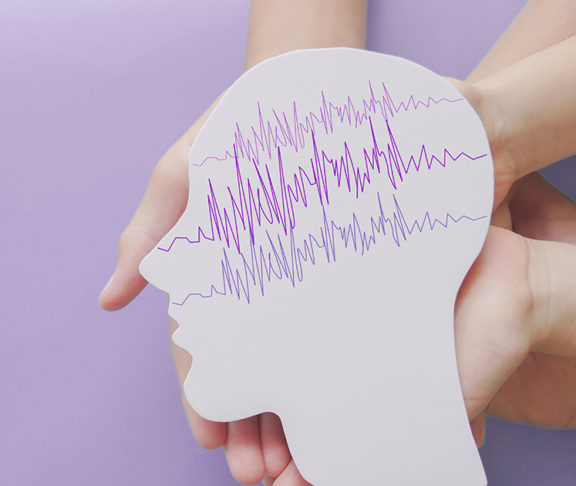
Dr. Colin Josephson
Assistant Professor, Neurology & Community Health Sciences, O’Brien Institute for Public Health, Centre for Health Informatics, & Hotchkiss Brain Institute, University of Calgary

Gary Collins
President, Epilepsy Canada
Epilepsy Canada raises money for research to find a cure for epilepsy and to discover solutions that improve the quality of life for those living with the disease.
While many effective medications exist to help people with epilepsy, it’s challenging to predict which treatment will work best for an individual patient.
Doctors will try one medication and monitor its side effects and how effective it is. If it doesn’t work, they’ll try another medication. This can be a long, frustrating process for people living with epilepsy.
Dr. Colin Josephson is working to reduce this burden. “This process exposes patients to many months of potentially ongoing seizures and side effects, which are very disruptive mentally, physically, and socially,” he says. “We want to be able to find the right medication for the right person at the right time.”
Dr. Josephson, Assistant Professor of Neurology and Community Health Sciences at the O’Brien Institute for Public Health, Centre for Health Informatics, and Hotchkiss Brain Institute at the University of Calgary, is leading a research study that leverages big data and machine learning to identify which treatment will work best for individual patients.
Funding research that will have a big impact
The research involves collecting data from the brain waves (EEG) and MRI results of 400 patients and combining it with their clinical and genetic information. Sophisticated computer software will use this information to create models that predict who will respond to a certain anti-seizure medication and who won’t.
Gary Collins, President of Epilepsy Canada, says that research like Dr. Josephson’s can have a major impact. The organization awarded Dr. Josephson a 2021 New Investigator Award to help fund his research.
“We select projects that we think will make a difference in the lives of Canadians and Dr. Josephson’s project was really outstanding,” Collins says, adding that he knows just how much of an impact research can have on people’s lives.
Diagnosed with epilepsy in 1985, Collins’ seizures have been mostly controlled by medication ever since. But about five years ago, his medication started causing side effects. He had trouble with balance, experienced tremors in his hands and eyes, and could no longer play sports or concentrate on reading. Then he tried a new medication.
“It’s been three years and the turnaround was amazing,” he says. “My balance is back. I’m back to physical activity, enjoying life. I can concentrate. It was like a new beginning. So I have been the beneficiary of great research.”
About 300,000 Canadians are living with epilepsy, which is a neurological disorder characterized by repeated, unprovoked seizures. For about two-thirds of patients with epilepsy, medications will stop their seizures, while about one-third don’t respond to treatment.
Epilepsy is common but because many people with epilepsy don’t talk about it due to persisting stigma about the disease, the general population often isn’t aware of how prevalent it is and doesn’t fully understand its impact.
Epilepsy can cause much fear and uncertainty
The effects of epilepsy are far-reaching. “Not knowing when a seizure might happen can cause a lot of fear and uncertainty. Epilepsy can affect your ability to get and keep a job, go to school, or socialize,” Dr. Josephson says. “If you have seizures, it means that you won’t be able to drive. This takes away a huge degree of independence.” One in three people with epilepsy develop depression, while one in four have anxiety, says Dr. Josephson.
“Epilepsy is common but because many people with epilepsy don’t talk about it due to persisting stigma about the disease, the general population often isn’t aware of how prevalent it is and doesn’t fully understand its impact. This has affected our ability to fund research,” says Dr. Josephson. “I would say that if you’re going to donate toward epilepsy research, you’re going to have a major impact on somebody’s life. I’ve seen how you can change a person’s life who has limited hope or expectations and then they’re able to go to school or work and drive and have a social life. It’s really quite remarkable.”




